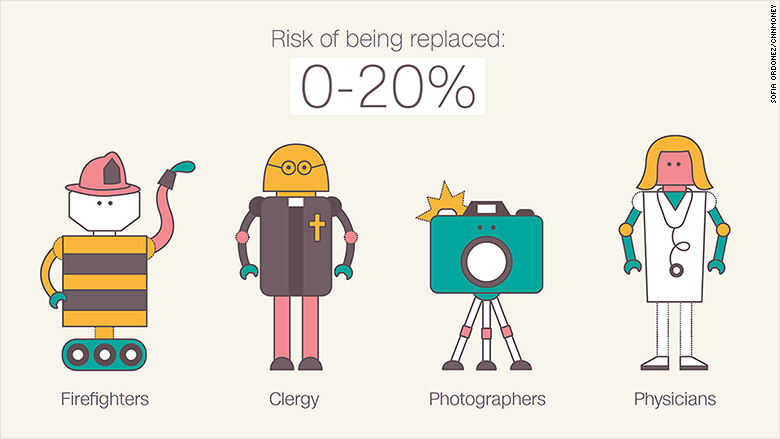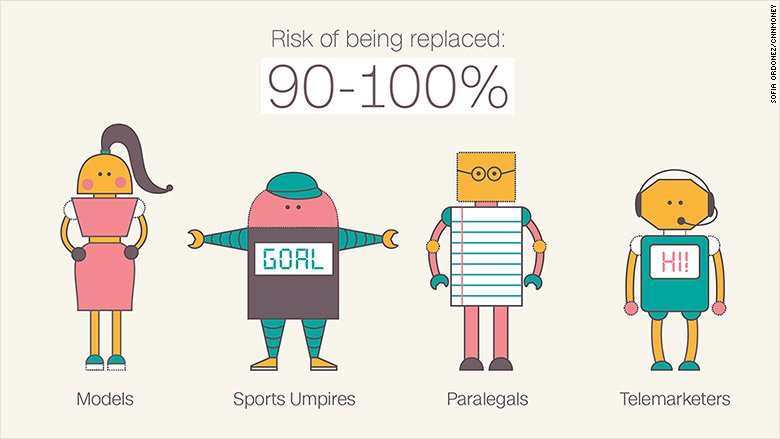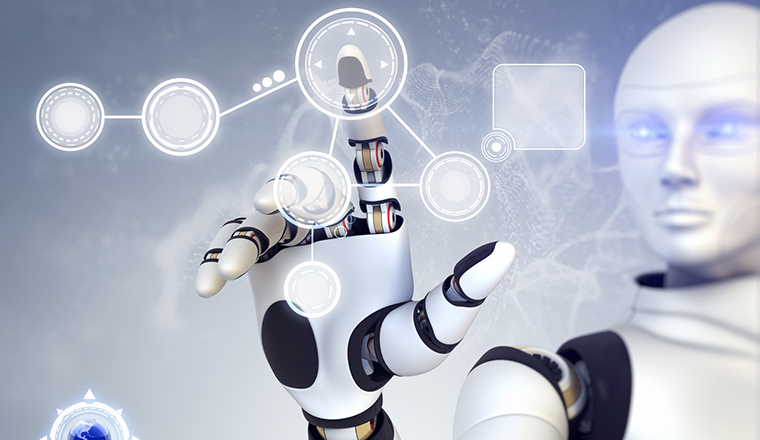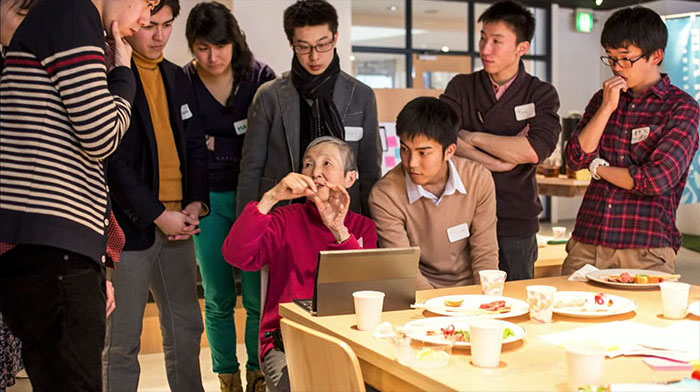It’s a well-imagined theme of science fiction: robots vs people in mortal combat.
Certainly Elon Musk seems to agree. He claims artificial intelligence is humanity’s greatest threat, leading possibly to a third world war. Should we imagine the worst, or is a more moderate view called for? Although automation will hit all kinds of industries, it’s not as clearcut as you might think, and there could well be certain advantages if you play your cards right.
Watch this 3-minute video to see how robots can replace human workers in a warehouse.
Will your job be around in the future?
Let’s start where automation is likely to hit hard. Bookkeepers, for example, have a 97.6% chance of being automated. Contrasted with bookkeeping, right at the bottom end of the automation spectrum, are mental health and substance abuse social workers, who have a 0.3% chance of being automated, because their jobs require high levels of original thinking, negotiation and helping others. How are these percentages calculated? The researchers looked at jobs across four variable: does your job require that you come up with clever solutions, do you have to personally help others, does your work require negotiation and, interestingly, does your occupation need you to squeeze into small spaces (i.e. jobs that are routine, repetitive and predictable)?
Check out this nifty guide to assess the likelihood of your job being automated, but first see if your job is one of those that has a higher likelihood of being automated.


Whole sectors will become automated in the future. For example, this walk-out technology from Amazon means you can do retail shopping with no staff (using the same technology as self-driving cars):
Before becoming despondent, remember automation does not necessarily equate to job losses. Instead, jobs will be redefined with technology playing a much greater role. What does this mean for software developers? Good things. They have only a 12.8% chance of being automated, but there are vital factors worth considering. Mario Peshev, the CEO of DevriX and a digital consultant, on the Forbes website says: “A certain portion of the software development industry will become automated and obsolete to some extent”. This is particularly the case where elements are repetitive or could be bundled together. But, the software development industry “isn’t going anywhere”, especially where custom work and innovation is required.

Over the next few decades, software developer jobs that include these three aspects will still be in high demand:
Flexibility
This will include custom features, integrations, tailored admin, and user areas that are specifically adaptable for given industries. Workers who can cover all aspects, including the front-facing aspect of software development, the behind the scenes part, and the various systems operating in between, will be in high demand. Here your full stack web developer who is capable of using a combination of HTML, CSS and JavaScript to build everything a user sees and interacts with on a website, as well as developing the application, server and databases (using Java, PHP, .NET, Ruby, Python, Perl) that make up the back end or foundational structure of a website.
Performance
You will need coders who can help with a variety of performance issues as they relate to software applications – for example, where you are bundling together a number of tools or solutions, or where there is a massively large volume of users or data.
Security

In an application, there is a relationship between security and freedom of use. The more secure an application, the more steps or restrictions it includes. So ‘off the shelf’ solutions are, as a general rule, either super secure or usable but vulnerable. However, if you want something highly secure and usable, you would require a customised solution and people capable of implementing this.
Download the Programming Languages Guide 2017 to know which languages will be popular in the future.
In addition to the work required for building applications, think about what our homes, transport networks and work environments will look like. For example, it’s relatively easy to imagine the smart home – smart phones unlocking our front door, voice-activated virtual assistants controlling the lighting and the temperature, coffee machines activating when we get up etc. – and how it will get even better (although most of the technology already exists for the ideas listed above). But as technology continues assisting us in our day-to-day lives, you will need people who are able to design and implement it. Even if we think of a world with automation handling 90% of the tools, components and libraries out there, you will still needs millions of software developers who can support, extend and integrate these solutions.
This means you shouldn’t worry as long as you are can possess the technological skills required in the next few decades. Browse some courses we recommend you should take, especially if you are wanting to upskill or shift the focus of your sellable expertise.
Perhaps it’s best to think of tech as a job creator, and not a destroyer. And remember, it’s never too late to learn something new.

Masako Wakamiya, a retired banker from Japan, started taking online tutorials to learn how write software code at 82! She was frustrated by the lack of mobile games for the elderly and so made one of her own.
Think About
What will happen when robots or algorithms know us better than we know ourselves? Says the Guardian when reviewing Max Tegmark’s book Life 3.0: Being Human in the Age of Artificial Intelligence: “Instead of fearing assassin robots that try to terminate us, we should be concerned about hordes of bots who know how to press our emotional buttons better than our mother, and use this uncanny ability to try to sell us something.”


